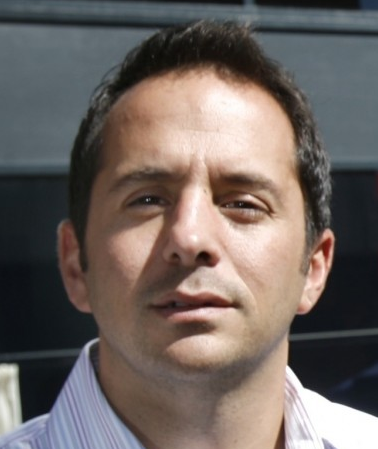Guest MINDSETTER™ Ken Block: Understanding and Fixing What Went Wrong With 38 Studios
Monday, September 28, 2015
Last week’s release of documents relating to the state’s 38 Studios lawsuit was a sad and depressing event. Laid bare was gross incompetence, awful decision making and dereliction of duty to taxpayers.
The public perceives a lack of serious effort on the part of our government to determine accountability regarding 38 Studios. The fact that the depositions released by the courts contained so many surprises proves that our government did little to try to disclose the truth of what happened to the public. This is unacceptable and unconscionable.
Since this disaster was conceived inside our legislature and delivered by the Economic Development Council (EDC), both entities need to perform a public introspection and then provide a list of reforms to ensure that something like 38 Studios will not happen again. While in theory the EDC exists no more and has been renamed the Commerce Corp, I remain unconvinced that much has changed inside this agency which bears the most blame for failing to stop this bad deal.
GET THE LATEST BREAKING NEWS HERE -- SIGN UP FOR GOLOCAL FREE DAILY EBLASTThe General Assembly now appears to be ready to hold hearings to explore 38 Studios more fully.
Issues the General Assembly should pursue in hearings:
• Hold subpoena-based hearings to demand answers from everyone involved – especially those who were not deposed in the court case. Remember that the lawyers in the court case were only interested in winning their case – they were not trying to fully explain 38 Studios. The public needs more information than is contained in the released depositions and documents. If possible, the motivations of key players like Fox, Corso, Carcieri, Stokes, Murphy and Chafee need to be determined.
• Explore the utter lack of due diligence performed by the Board of the now disgraced EDC. Depositions from former EDC Board members indicates that these captains of RI industry abdicated their responsibility to fully assess the risks of the 38 Studios deal. Deposition after deposition states that these board members fully relied on EDC staff to determine the merits of the deal. What is the point of having a Board who simply acts as a rubber stamp to others? Thanks to Karl Wadensten – the sole EDC board member to vote no on 38 Studios.
• Probe Keith Stokes’ failure as the head of the EDC to guide that agency to do the right thing for taxpayers. Did Stokes have the skills necessary to be in that role? Missing from the deposition questions were queries driving to the competency of those involved. Did patronage jobs play a role in the EDC’s failure to perform?
• Explain Governor Chafee’s apparent abdication of duty to oversee the deal once he took office. As bad as the decision making was to approve the deal in the first place, Chafee’s complete detachment from protecting taxpayers’ investments after the fact needs to be more fully questioned.
What reforms should the General Assembly consider once the 38 Studios story is fully understood?
• The Speaker is too powerful. Fox wanted 38 Studios, and it happened. Between the imbalance of power between RI’s legislature and Governor (one of the most imbalanced in the country) and the rules of operation of the House which give the Speaker incredible control over that body, fear of the Speaker’s power is enough to allow really awful public policy to occur. Things that can change to create a better balance of power include:
o Establish a Governor’s line-item veto for the budget. RI is only one of 6 states that do not have one.
o Provide mechanisms for bills to move through the House that the Speaker does not like. It took more than 50 years to get the Master Lever bill a vote in the House, which remains an outrage. Why does a Representative, once elected, cede most of his or her power to the Speaker? RI should explore best practices in other state legislatures and adopt rules of operation that benefit the public. We need more than anything else great lawmaking – and we continue to not get it. The rules and procedures are partly to blame.
o Eliminate the corrupt legislative grant program.
• Eliminate the use of moral obligation bonds. They cost too much and buy RI taxpayers nothing. There may be a small number of valid reasons to use moral obligation bonds – those need to be carefully explained.
• Cease and desist from patronage employment. Safeguard the executive branch and quasi-public agencies from being pressured to hire unqualified people simply because someone powerful wants to get cousin Joey a job.
• Make impossible the rushed, last minute, poorly understood lawmaking that gave birth to 38 Studios. Too many vitally important pieces of legislation pop up in the last days or weeks of the legislative session. This disrespects the public, which deserves the right to be able to understand and weigh in on potential legislation.
Who do elected officials serve?
Elected officials must not lose sight of the fact that they, government employees and appointed officials are there to serve the public. Nearly everyone involved in the decision making that led up to the 38 Studios disaster and the weak effort to explain the failures after the fact has disserved the public’s interest.
Rhode Island deserves better than this.
Ken Block was the Republican candidate for Governor.
Related Slideshow: Seven 38 Studios Facts You Would Not Believe
Here are the seven facts that you would not (want to) beleive about the 38 Studios deal.
Related Articles
- Moore: RI’s 38 Studios Economy Breeds Unfairness
- Judge Turns Down Wells Fargo’s Request for 38 Studios Redactions
- 38 Studios Boss Zaccagnino’s Deposition and Exhbits
- Where Has Kilmartin Been on 38 Studios, Corso, and Doyle?
- The Players in the 38 Studios Saga
- NEW: Government Reform Groups Call For Formal 38 Studios Investigation
- Speaker Mattiello Pleased With 38 Studios Ruling
- 38 Studios Documents to be Unsealed
- Tens of Thousands of 38 Studios Documents Being Catalogued for Release
- NEW: 38 Studios to be Released Today - See All the Documents on GoLocalProv
- Gov. Lincoln Chafee’s 38 Studios Deposition and Exhibits
- 38 Studios Documents Unveil Carcieri, Fox and Other Leaders Lied About Deal
- One 38 Studios Document Shows Why RI’s Investment Was Simply Absurd
- NEW: 38 Studios Defense Has Run up $20M+ in Legal Fees, Says RI’s Lawyer
- Insider Michael Corso’s 38 Studios Deposition and Exhibits
- Seven 38 Studios Facts You Would Not Believe
- Speaker Gordon Fox’s 38 Studios Deposition and Exhibits
- Gov. Gina Raimondo’s 38 Studios Deposition and Exhibits
- The Big 38 Studios Document Surprise is No Deposition from Curt Schilling
- Governor Donald Carcieri’s 38 Studios Deposition and Exhibits
- Former Speaker Bill Murphy’s 38 Studios Deposition and Exhibits
- Moore: Speaker Mattiello Should Resign Over 38 Studios
















